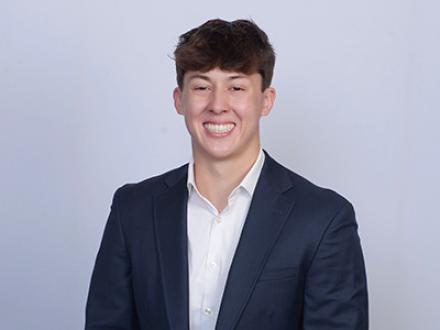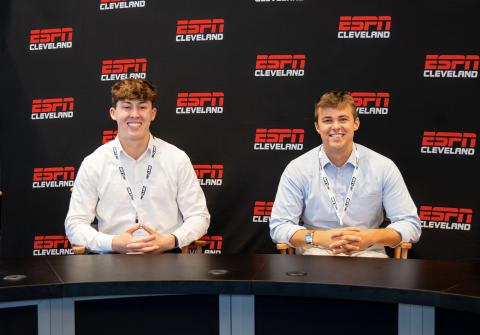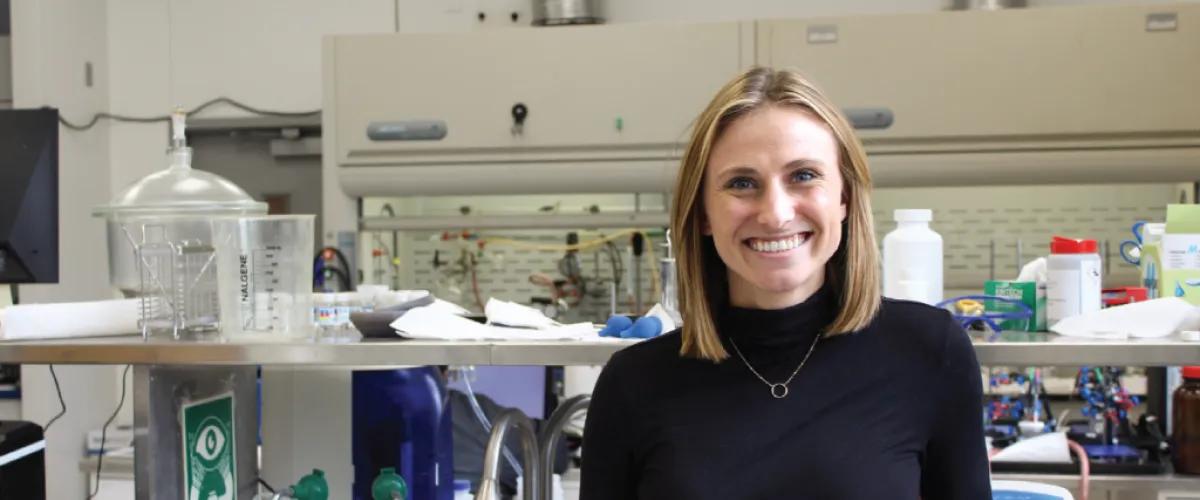
Meet Mark Takasaki: LaunchNET Grant Recipient and Student-Athlete Entrepreneur
For Mark Takasaki, balancing academics, athletics, and entrepreneurship has become second nature. A double major in finance and accounting at Case Western Reserve University, Takasaki is also pursuing Weatherhead School of Management's integrated Master of Finance program and is set to graduate in 2028.
Beyond the classroom, he plays varsity baseball, serves as head of professional development for Alpha Kappa Psi, and works as an associate in the Weatherhead Fund’s TMT group. This fall, he’ll add another experience to the mix with an internship at a boutique investment bank.
But it’s his latest entrepreneurial venture—a startup developed with co-founder Charles Griffith, an international studies, French and economics triple major on the pre-law track graduating in 2028—that has pushed him to think bigger than ever before.
A smarter way to support athletes
The idea behind their startup is simple but powerful: unify the way student-athletes communicate and train.
“Right now, players, coaches, trainers, and nutritionists all rely on separate, disconnected apps,” Takasaki explained. “We wanted to eliminate that fragmentation by creating a single platform that integrates training, nutrition, and communication.”
Both lifelong athletes, Takasaki and Griffith saw firsthand the inefficiencies holding teams back. With support from Weatherhead School of Management, LaunchNET, and the Veale Institute for Entrepreneurship, they began shaping a solution that could impact athletes not only at CWRU but across universities nationwide.
Discover more about Takasaki and his LaunchNET experience in his own words.
1. How did LaunchNET and the grant support shape your journey?
LaunchNET connected us with a network of intelligent, driven, and supportive mentors who guided us through the early stages of entrepreneurship. The THINK Grant gave us the resources to act on our vision, validate our ideas, refine our platform, and position for scale. Their support was instrumental in turning our concept into a real venture. Additionally, attending events such as the SportsLand Summit expanded our network, connected us with industry leaders, and accelerated our learning.
2. What has been the biggest challenge you’ve faced while developing your idea, and how did you overcome it?
The biggest challenge has been entering the startup world with little experience. We overcame this by staying curious, asking questions, and seeking guidance from mentors. Our professors at the Veale Institute for Entrepreneurship and the Weatherhead School of Management played a critical role by providing feedback, direction, and resources that helped us refine our approach.

3. What milestone or achievement are you most proud of so far?
Being awarded the THINK Grant is a milestone I am proud of because it validated our idea and gave us the momentum to move forward. Equally rewarding has been seeing athletes and coaches respond positively, which confirmed that this is a real need in the student-athlete community. We have also conducted market research and continue to speak with coaches at other universities and athletic professionals in the space to further refine and strengthen our platform.
4. What advice from LaunchNET mentors or your own experience has stuck with you?
Advice that has stayed with me is the importance of taking pride in your work and giving consistent effort. These lessons came from my parents when I was young and have guided me ever since. What resonates with me is that both pride and effort are completely within one’s control. In the startup space, where environments are constantly shifting and new challenges arise, this mindset provides a steady foundation for advancement.
5. Looking ahead, what’s next for your venture — and what advice would you give students thinking about applying to LaunchNET?
Looking ahead, the next step for our venture is working with a coder to develop the application and launching pilot testing with sports teams at Case Western Reserve University. This stage will allow us to refine the platform in a real-world setting and gather the feedback we need to scale effectively. The advice I would give to students considering LaunchNET is to be confident in their ideas, remain consistent in their effort, and always pursue continuous improvement. Entrepreneurship comes with constant challenges and uncertainty, but confidence and consistency provide the foundation to move forward, while a commitment to improvement ensures you adapt and grow along the way.



